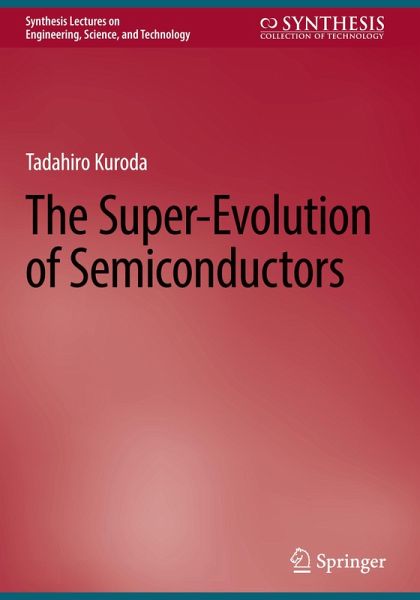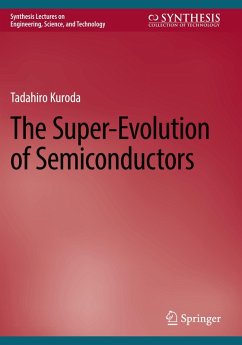
The Super-Evolution of Semiconductors
Versandkostenfrei!
Versandfertig in 1-2 Wochen
38,99 €
inkl. MwSt.
Weitere Ausgaben:

PAYBACK Punkte
19 °P sammeln!
This book presents the author's view of how the global semiconductor industry will evolve, based on recent megatrends not only in the industry but also in society, including the rapid proliferation of AI, the global semiconductor shortage, the rising importance of semiconductors in the value chain, and the movement to democratize semiconductors. It describes and explains major transformations taking place in the industry as a result, which necessitate significant changes not only to its technology but also its economic model and industrial structure. Finally, the book elaborates on the author'...
This book presents the author's view of how the global semiconductor industry will evolve, based on recent megatrends not only in the industry but also in society, including the rapid proliferation of AI, the global semiconductor shortage, the rising importance of semiconductors in the value chain, and the movement to democratize semiconductors. It describes and explains major transformations taking place in the industry as a result, which necessitate significant changes not only to its technology but also its economic model and industrial structure. Finally, the book elaborates on the author's theory of super-evolution of semiconductors that will lead to the success of the industry in the emerging knowledge-based digital society.












